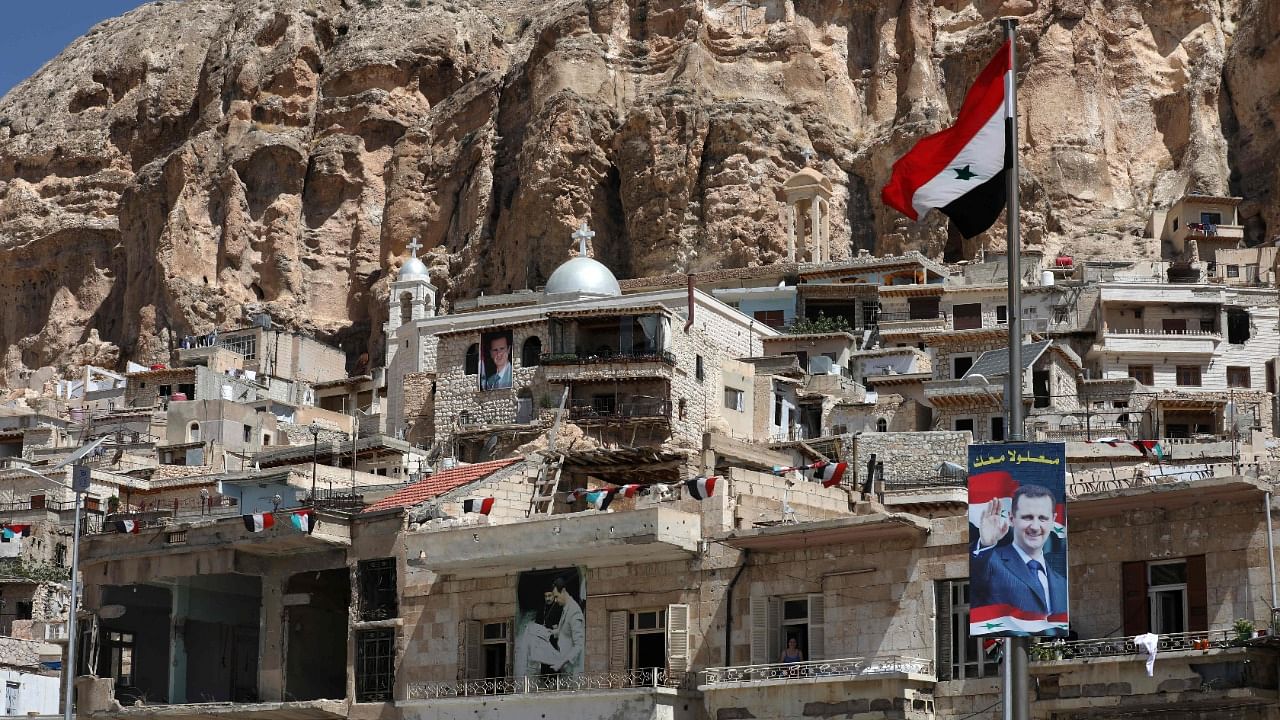
In the ancient Syrian village of Maalula, whose residents still speak the language of Jesus, volunteers rake stones and scrub graffiti in preparation for the return of Christian pilgrims after years of war.
Nestled among towering cliffs in the mountains north of Damascus, Maalula is one of the world's oldest Christian settlements.
Before Syria's war, it drew in thousands of visitors a year — including former US president Jimmy Carter and late Venezuelan leader Hugo Chavez — to visit its churches and monasteries and to hear its inhabitants speak Aramaic.
But from 2011 onwards, the devastating conflict largely kept pilgrims away from the village, whose name in Aramaic means "entrance", after the narrow passage between its limestone cliffs.
Legend has it that in the first century Saint Taqla, a young woman, escaped an arranged marriage to a pagan and ran away from her home to lead a Christian life.
With Roman soldiers in hot pursuit, she reached a dead end in the mountains, but when she prayed, a passage opened in the rock face, leading into a cave.
She lived there for the rest of her life, curing the sick with water from a sacred spring, near the site of today's Saint Taqla Greek Orthodox convent.
In the narrow pass at the foot of the canyon, men have been working in the summer heat to prepare the site for visitors in time for Assumption on August 15.
Volunteers heaved a fallen boulder from the pathway then shovelled limestone debris into a wheelbarrow to clear the way for a new stone path.
Yahya, 29, dabbed a wet cloth on the rock to rid it of graffiti left during the conflict.
"We'll make it even more beautiful than it used to be," he said, sweat pouring from his forehead.
Nearby, on the side of the winding 500-metre canyon leading to the Saint Taqla convent, the Arabic word "message" and a heart were still visible, both in red paint.
Rebels and jihadists linked to Al-Qaeda seized Maalula in the autumn of 2013, forcing most of its Christian inhabitants to flee.
Syria's then-Al-Qaeda affiliate kidnapped 13 nuns from the Saint Taqla convent. They were released in a prisoner swap with the Damascus authorities in March 2014.
Regime forces recaptured Maalula the following month.
But years on, many of the town's 6,000 mainly Greek Catholic inhabitants have yet to return, and so have out-of-town visitors.
Village mayor Ibrahim al-Shaer said the canyon was once a key attraction.
But during the conflict, "it was left to the mercy of the elements, littered with remnants of war, and its walls defaced by graffiti," he said.
Yussef Ibrahim, the deputy governor of Damascus governorate, grew up in Maalula.
He remembered the days when diplomats and foreign dignitaries where driven in to admire the ancient village.
"People used to come to the Maalula grotto to pray and seek a cure" to their ailments, he said.
"I'll be much happier when I see them all return."